



The Open Document Format (ODF) is an XML-based file format specification designed to support office electronic documents such as spreadsheets, charts, presentations, and word processing files. It offers key advantages including portability, readability, and self-descriptive structure, making it particularly suitable for long-term document preservation. Moreover, ODF is free from technical and legal barriers, enhancing its accessibility and interoperability.
In alignment with the government's open information policy and in response to the growing diversity of digital platforms and devices, ODF facilitates public access to government information via websites and enables seamless data exchange among government agencies and between the public and private sectors. To promote a highly compatible, platform-independent, and preservation-friendly open file format, the Executive Yuan officially adopted ODF-CNS15251 as the standard format for government documents starting January 1, 2015.
All sectors are encouraged to support the adoption of the Open Document Format (ODF) and to respond to the government's initiative for open document standards, thereby contributing to the enhancement of Taiwan’s digital capabilities and international competitiveness.
Advantages of Using ODF
Cross-Platform and Cross-Application Compatibility
ODF facilitates seamless document exchange across various operating systems (e.g., Windows, Linux, macOS, Android, iOS) and software applications. Compared to proprietary formats, it is better suited for adoption by government agencies.
Open Format for Long-Term Data Preservation
Documents remain accessible regardless of software version updates or upgrades, making ODF ideal for long-term preservation and future-proofing of digital records.
Free of Charge
Open-source software enables users to open government-provided documents without licensing fees, enhancing document accessibility, allowing free duplication and distribution, and avoiding copyright infringement.
Global Alignment
Numerous governments and enterprises worldwide have publicly committed to adopting ODF as the standard format for document exchange and storage, helping to prevent the loss of critical information and ensuring international interoperability.
Common Types of Open Document Formats
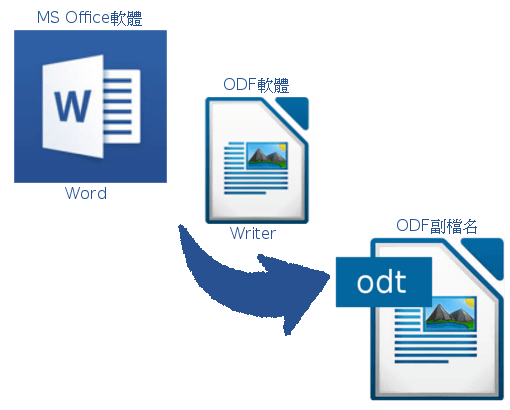
Writer(.odt)
Word Processing Software
Enables convenient document exchange and can be displayed and opened across various operating systems (e.g., Windows, Linux, macOS, Android, iOS) and applications. Compared to proprietary software, it is more suitable for use in government agencies.
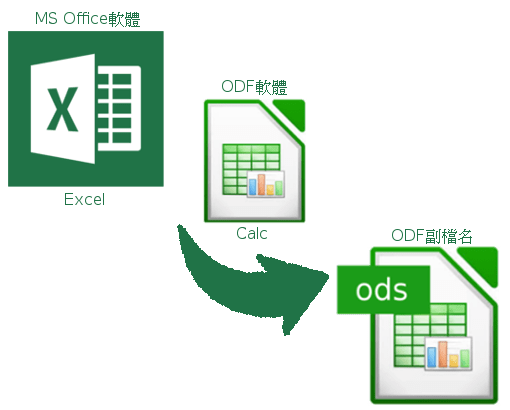
Calc(.ods)
Spreadsheet Software
Documents remain accessible regardless of software version updates or upgrades, supporting long-term preservation and aligning with future digital archiving trends.
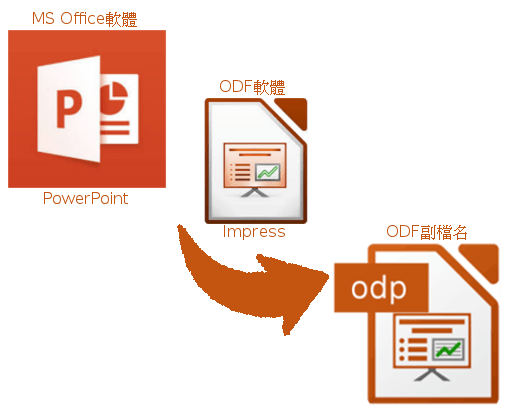
Impress(.odp)
Presentation Software
Open-source tools allow government-provided documents to be opened free of charge, enhancing document circulation, enabling unrestricted copying and distribution, and avoiding copyright infringement.
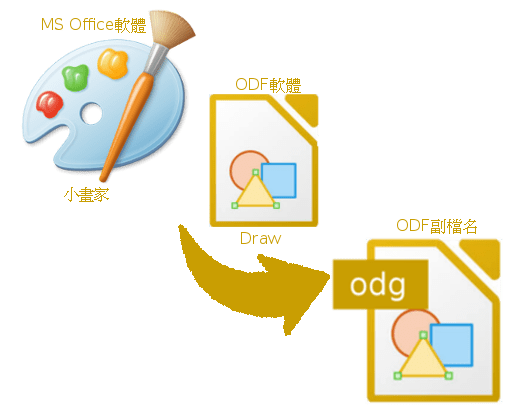
Draw(.odg)
Charting and Diagramming Software
Many government agencies and enterprises around the world have publicly committed to adopting ODF as the standard format for document exchange and storage, helping to prevent the loss of critical information.
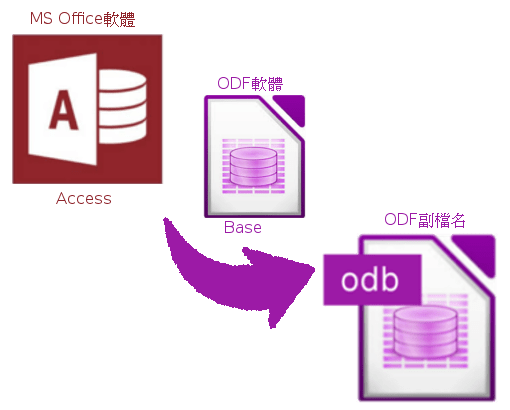
Base(.odb)
Database Software
Many government agencies and enterprises around the world have publicly committed to adopting ODF as the standard format for document exchange and storage, helping to prevent the loss of critical information.
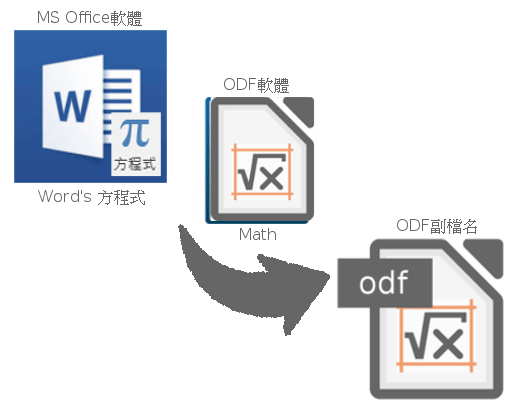
Math(.odf)
Mathematical Equation Editing Software
Numerous public and private sector organizations globally have pledged to use ODF as their official format for document exchange and archival, ensuring the integrity and longevity of essential data.

PDF(.pdf)
Portable Document Format (PDF)
A growing number of governments and corporations worldwide have formally adopted ODF as the standard for exchanging and preserving documents, safeguarding against the risk of losing important information.
Software Download Area
After downloading an ODT file, users with Microsoft Office 2007 (Service Pack 2) or later installed on their personal computers can open it directly. However, for users with Microsoft Office 2003 or earlier—or those without any word processing software—there is no need to purchase Microsoft Office products.
For personal computers, you can freely download and install LibreOffice. For mobile devices, you may use free apps such as OpenDocument Reader (Android) or OOReader (iOS) to open your downloaded ODT files.
(1) Personal Computer (PC) Environment
- LibreOffice(compatible with Windows, macOS, Linux)
- ODF Document Application Tool by the National Development Council(compatible with Windows, macOS)
- OpenOffice(compatible with Windows, macOS, Linux)
(2) Mobile Device Environment – Smartphones and Tablets
- OpenDocument Reader(for Android)
- LibreOffice Viewer(for Android)
- OOReader(for iOS)

 繁
繁  EN
EN